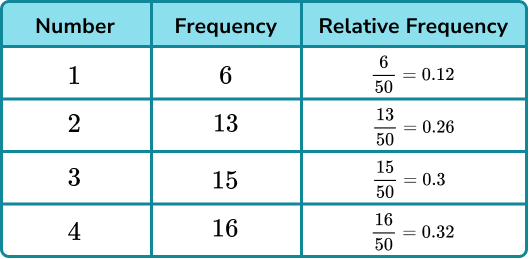Experimental probability formula
In mathematics, probability refers to the chance of occurrence of a specific event. Probability can be measured on a scale from 0 to 1.
Assume that a train is two hours late due to heavy weather, and that the train is scheduled to arrive at the station at p. You are anticipating the arrival of the train at p. We can state the probability is less than or equal to one. The probability is the expectancy in this case. The probability ranges from 0 to 1, with 0 indicating an impossible event and 1 indicating a certain event. It is the observational probability, also known as the empirical probability when the Experimental probability definition is described in experiments or the relative frequency of events.
Experimental probability formula
Probability means the chances of a number of occurrences of an event. In simple language, it is the possibility that an event will occur or not. The concept of probability can be applied to some experiments like coin tossing, dice throwing, playing cards, etc. Experimental Probability is one of the interesting concepts of Probability. But have you ever thought that how these expectations sometimes turn into reality? The reason behind the chances, expectations, doubts, and forecasts is Probability. Probability in simple meaning gives us the predictions of an event that may or may not be happened based on our past experiences. And these Past experience is based upon the experiment of events. The branch of mathematics that tells us about the likelihood of the occurrence of any event is the probability. Probability tells us about the chances of happening an event. The probability of any element that is sure to occur is One 1 whereas the probability of any impossible event is Zero 0. The probability of all the elements ranges between 0 to 1. Experimental probability is a type of probability that is calculated by conducting an actual experiment or by performing a series of trials to observe the occurrence of an event.
Download Now. Then, you can find the probability of experimental probability formula event occurring by dividing the number of times the event occurred by the total number of trials.
You and your 3 friends are playing a board game. Now, is it possible that upon rolling the die you will get an exact 5? No, it is a matter of chance. We face multiple situations in real life where we have to take a chance or risk. Based on certain conditions, the chance of occurrence of a certain event can be easily predicted. In simple words, the chance of occurrence of a particular event is what we study in probability. Probability, a branch of Math that deals with the likelihood of the occurrences of the given event.
If you're seeing this message, it means we're having trouble loading external resources on our website. To log in and use all the features of Khan Academy, please enable JavaScript in your browser. Search for courses, skills, and videos. Probability models. About About this video Transcript. Compare expected probabilities to what really happens when we run experiments. Want to join the conversation? Log in. Sort by: Top Voted.
Experimental probability formula
Experimental probability refers to the probability of an event based on actual experimentation or observation of outcomes. Anand S and Pooja are excellent math teachers and are quick to respond with requests to tutor on any math topic! Medini and other teachers were patient with her and redirected her back to the courses.
House designs plans pictures
Campus Experiences. Kindergarten Worksheets. You will be notified via email once the article is available for improvement. Use the table to answer the questions that follow. Q2: Which of the following is a probability experiment? To evaluate their likelihood, a random experiment is conducted and repeated numerous times, with each repetition serving as a trial. Related Articles. In tossing a coin, there are two outcomes: Head or Tail. What is the experimental probability of getting a head? For instance, you flip a coin 30 times and record whether you get a head or a tail. Aptitude Probability Question 3. How many people like electric cars?
If you're seeing this message, it means we're having trouble loading external resources on our website. To log in and use all the features of Khan Academy, please enable JavaScript in your browser. Search for courses, skills, and videos.
Theoretical probability assumes that everything will turn out perfectly. Add Other Experiences. Assume you flip a coin 50 times and keep track of whether you get a "head" or "tail. Probability means the chances of a number of occurrences of an event. In the nutshell, the experimental probability focuses on the result of an experiment, while the theoretical probability is just an assumption that we make to work on our experiments. What is Experimental Probability? Determinants Worksheet. This suggests that the experimental likelihood of receiving tails in flips is 53 percent, whereas the experimental probability of getting heads in trials is 47 percent. Over a period of working days, on his way to work, he had to wait for a train at the railway crossing for 68 days. After inspecting tablets, the manufacturer found that 30 tablets were defective. Now we'll take each step toward our goals one by one. Decimal Number.


I consider, that you commit an error. I suggest it to discuss.